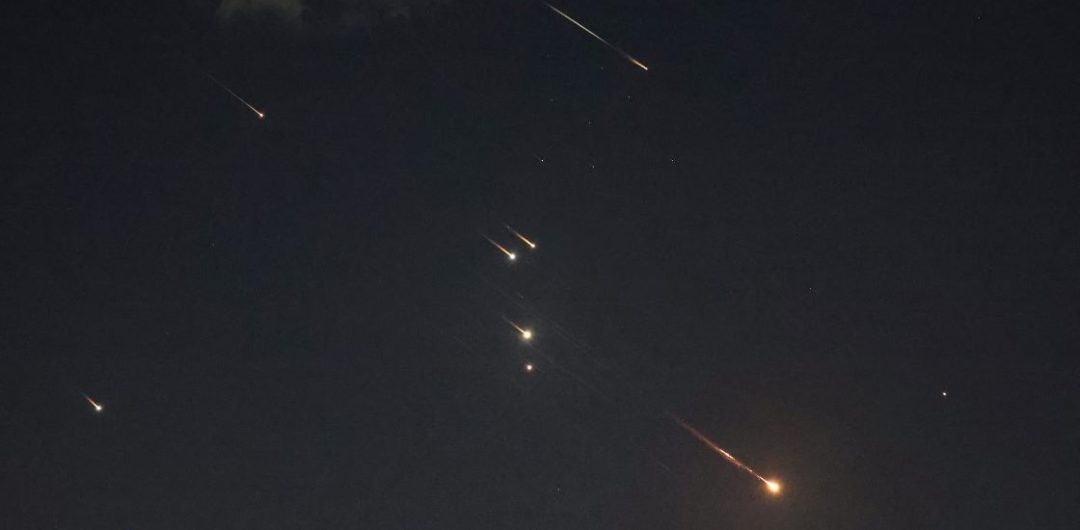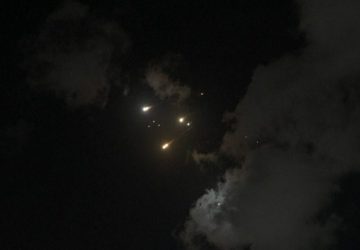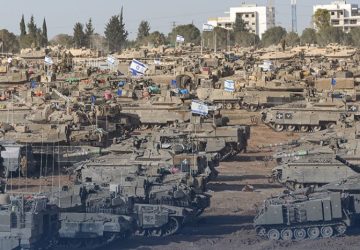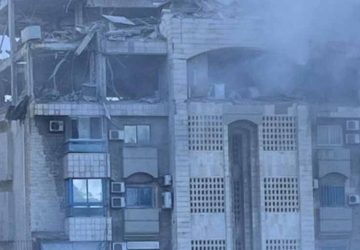Iran launched a barrage of missiles toward Israel on Tuesday, declaring it as retaliation for the assassinations of its allies, Hezbollah leader Hassan Nasrallah and Hamas’s Ismail Haniyeh. In a move aimed at showcasing defiance, Iran warned its adversaries of the attack before launching, though the missiles caused no significant damage. Tehran vowed to retaliate against any Israeli response.
Iran has vowed a larger and crushing response if Israel retaliates to the hundreds of missiles it launched against the Hebrew state on Tuesday night.
Israel’s military announced it intercepted a large number of missiles fired by Iran at the country, the army spokesman said, adding that there were a few “hits” during the barrage.
“We have carried out a large number of interceptions. There were a few hits in the centre and other areas in the south of the country,” Israeli army spokesman Rear Admiral Daniel Hagari said.
Israel vowed to retaliate to the attack , with the army spokesman saying it would “respond at the time and place of its choosing”.
Israel closed its airspace with all flights being diverted, a spokesman for the airport authority said, while Iraq, Lebanon and Jordan, which lie between Iran and the Hebrew state, closed their airspace too.
Iran also subsequently suspended all flights within over its airspace until 10:00 AM the following day. ISNA news agency quoted airport chief Said Chalandari saying “For the time being, we have suspended incoming and outgoing flights at Tehran International Airport.”
As the missiles made their way to Israel from the east, blasts were heard over the Jordanian capital Amman, as Israel’s allies moved to intercept them, an AFP correspondent said.
Jordan said its air defenses responded to missiles and drones, with one missile falling in Jordanian territory.
A statement by the Iranian Revolutionary Gard Corp, IRGC, said the attack is in response to the killings of Hamas Politburo chief Ismail Haniyeh in Tehran, and Hezbollah’s Secretary General Hassan Nasrallah and IRGC commander Abbas Nilforoushan in a massive Israeli strike on Beirut’s southern suburb last week.
“In the name of God almighty; as a response to the killing of Ismail Haniyeh, Sayyed Hassan Nasrallah, and Abbas Nilforoushan, we targeted the heart of the Zionist occupying entity – if Israel responds, we will hit them a thousand times harder.”
#Iran Vows “Crushing” Response If Israel Retaliates to Its #MissileAttack pic.twitter.com/IYW9Nd7WKL
— This is Beirut (@ThisIsBeirut_) October 1, 2024
In a statement posted on X after the attack was over, Israeli army spokesperson Avichay Adraee said that Israel is not observing any additional threats from Iran in its airspace. Adding that they had “intercepted a significant number of missiles,” while only a few have been detected falling with no reports of casualties.
“We are in a high state of readiness both defensively and offensively,” he said in the statement.
Iranian missile shrapnel had managed to kill one Palestinian in the West Bank, according to a local Palestinian governor.
UN Secretary-General Antonio Guterres condemned the “broadening conflict in the Middle East”, after Iran launched a wave of missiles at Israel.
The United States said its forces are ready to provide “additional defensive support” to Israel after helping protect it from an Iranian missile attack, a US defense official said Tuesday.
“Our forces remain postured to provide additional defensive support and to protect US forces operating in the region” after “defending against Iranian-launched missiles targeting Israel,” the official said on condition of anonymity.
“A short while ago, missiles were launched from Iran towards the State of Israel,” the military said in a statement. It said sirens were sounded across Israel, including in Jerusalem.
An Iranian official cited by Reuters stated that Tehran had notified Washington through diplomatic back-channels and that it had also notified Moscow prior to launching the attack.
With AFP




